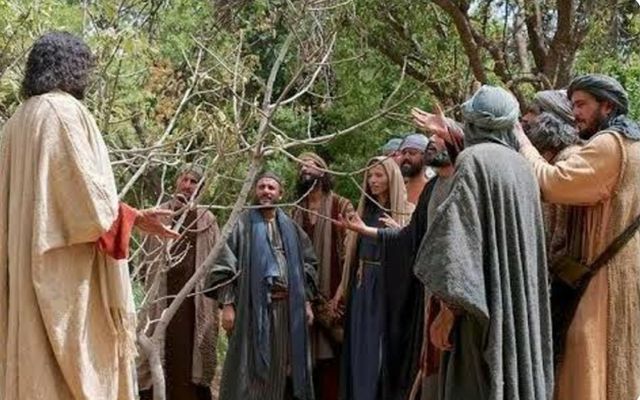Daily Manna
 181
181
 119
119
 2892
2892
Why Did Jesus Curse the Fig Tree?
Saturday, 5th of August 2023
 181
181
 119
119
 2892
2892
Categories :
Fruit of the Spirit
Israel

Now the next day, when they had come out from Bethany, He was hungry. And seeing from afar a fig tree having leaves, He went to see if perhaps He would find something on it. When He came to it, He found nothing but leaves, for it was not the season for figs. In response, Jesus said to it, “Let no one eat fruit from you ever again.” And His disciples heard it. (Mark 11:12-14)
The fig tree is one of the more frequently mentioned trees in the Scriptures. It was from its leaves that Adam and Eve made their first covering (Genesis 3:7). The fig tree was valued first of all for its delicious, sweet fruit (Judges 9:11).
The nation of Israel is often symbolically referred to as the ‘fig tree’. Even Lord Jesus made reference to the fig tree in connection with the nation of Israel being reborn again. (Matthew 24:32-33)
Several times in the Old Testament, the prophets describe God as inspecting Israel for “early figs,” as a sign of spiritual fruitfulness (Micah 7:1; Jeremiah. 8:13; Hosea. 9:10–17)—but he finds “no first-ripe fig that my soul desires.”
So in two exiles (Assyrian and Babylonian), God pours out the curse of barrenness (Hosea 9:16), and Israel becomes a rotten fig (Jeremiah. 29:17). So you see that fruitlessness leads to judgment.
But why did Jesus curse the fig tree if it was not the right season for figs?
The answer to this question can be determined by studying the characteristics of fig trees.
The fruit of the fig tree generally appears before the leaves, and because the fruit is green, it blends in with the leaves right up until it is almost ripe. Therefore, when Jesus and His disciples saw from a distance that the tree had leaves, they would have expected it to also have fruit on it even though it was earlier in the season.
Now you need to understand that there were many trees with only leaves, and these were not cursed. There were many trees with neither leaves nor fruit, and these were not cursed. This tree was cursed because it professed to have fruit but did not.
Symbolically, the fig tree represented the spiritual deadness of Israel, who, while very religious outwardly with all the sacrifices and ceremonies, inwardly was spiritually barren.
It also teaches us the principle that mere outward religious observances are not enough to guarantee inward salvation unless there is the fruit of genuine salvation evidenced in the life of the person.
The lesson of the fig tree is that we should bear spiritual fruit (Galatians 5:22-23), not just give an outward appearance of religiosity. God judges fruitlessness and expects that those who have a relationship with Him will “bear much fruit” (John 15:5-8).
Prayer
Each prayer point must be prayed for at least 2 minutes and more.
Personal Spiritual Growth
Father, in the name of Jesus, I will bear abundant fruit, the fruit of the Spirit. By this, You are glorified and that I will be Your true disciple. Amen
Family Salvation
I confess, as for me and my household, we shall serve the Lord.
Father, let your salvation come to every person and the families of those attending the KSM service.
Financial Breakthrough
I delight myself in the word of the Lord; therefore, I am blessed. Wealth and riches shall be in my house, and my righteousness endures forever. (Psalm 112:1-3)
Father, let every chain of darkness holding the finances and possessions of the people attending the KSM service break in Jesus' name.
KSM Church
Father, in the name of Jesus, I pray that every person connected to the KSM Church would grow in word and prayer. Let them receive a fresh anointing of Your Spirit.
Country
Father, raise up leaders who are filled with Your Spirit and wisdom in every city and state of India.
Father, let Your Spirit move upon every city and state of India. In Jesus' name.
Join our WhatsApp Channel


Most Read
● The Master’s Desire● The Comparison Trap
● Training for Battle - II
● Nurturing Relationships in His Light
● 21 Days Fast: Day #13
● Closing Spiritual Doors
● Red Alert
Comments







